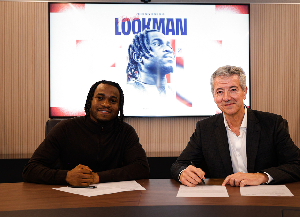After spending two years in Ghana, having spent the fourteen years before that in the USA I am always struck by why Ghanaians meekly accept tax increases from their government. You see I will expect Ghanaians to demand tax cuts and reject any form of tax increases. This is because taxes affect the economy negatively. Taxes distort prices, reduce the amount of market activity otherwise attainable, reduce consumer and producer welfare and induce inefficiency in markets. Taxes also decrease consumption and adversely affect economic growth resulting in economic hardship for the masses. Don’t get me wrong, I am not here to promote “Reaganomics” and neither am I saying that government should not tax its citizens. Taxes are a necessary evil because the government needs the tax revenue to provide “public goods” such as security, roads and education. But that is the point; government should be in charge of providing “public goods” not “private goods” so the amount of revenue it needs to do that should not be too excessive.
By definition, a public good is non-rival and non-excludable so that the consumption of the good by person A does not affect the amount person B consumes. Further, person A cannot prevent person B from enjoying the same good. The nature of public goods makes them difficult for private agents to provide them because the private agent cannot recoup his investment which is why it is optimal for government to produce public goods. An example of a public good is a road. By contrast, a private good is rival and excludable and is best provided by private citizens. An example of a private good is a home.
Given that a large government characterized by high taxes is prone to bureaucracy, inefficiency and corruption, the Ghanaian economy should be restructured so that consumers and producers, not the government are the focus of the economy. In order words, the size of the government needs to be reduced by reducing tax rates on income, goods and services so that consumers and producers will have majority of their own money to engage in productive processes that will help Ghana grow. By consolidating all the nations’ wealth in the hands of government we create perverse incentives that encourage unscrupulous leaders to spend their effort to obtain power just to enrich themselves. Have you taken a look at the MPs salary increase demands lately? You should. In contrast, if the citizens pay low taxes so that they have control of their own money and are supported by provision of public goods such as good roads and good security from the government and the pool of money available for government officials to waste is also small then the country has a fighting chance of developing.
Consider this: China, one of the most socialist countries in the world has now made the consumer the focus of the economy, reducing tax rates and abolishing the planned economy system. In the US, the democrats who are socialists that have historically favored tax hikes in order to raise revenue to help the poor are now offering tax cuts because tax cuts are the best way to grow an economy. Ghanaians should take a cue from this and demand their tax cuts.
Opinions of Wednesday, 20 April 2011
Columnist: Armah, Stephen Emmanuel














